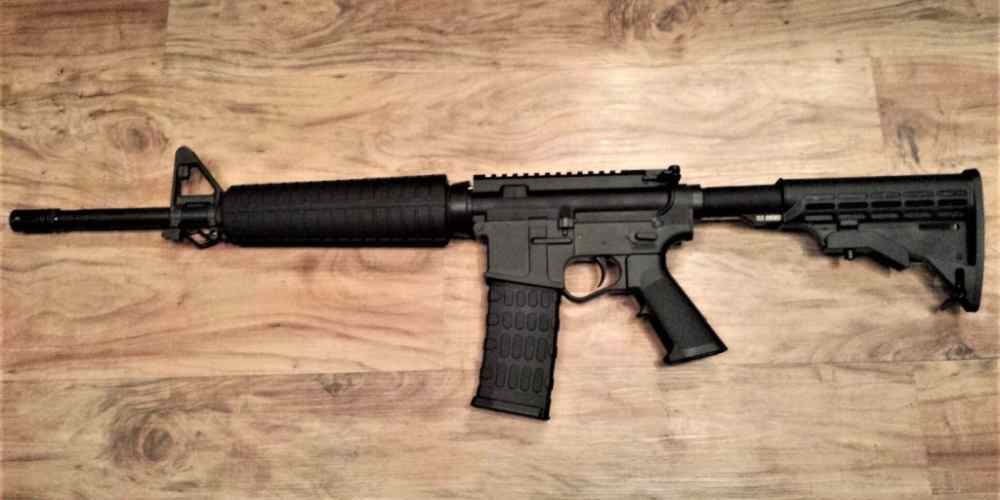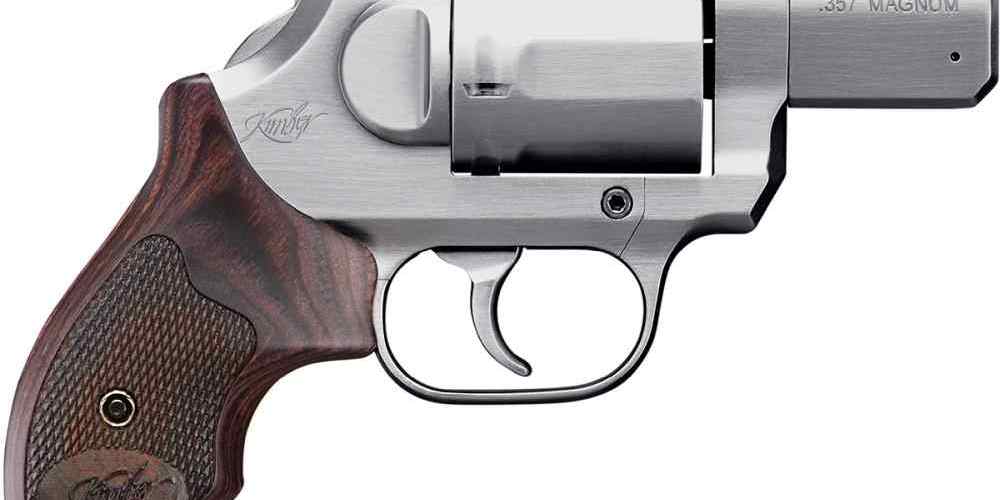“Balancing safety with freedom: the ongoing debate on gun control and civil liberties.”
Historical Overview of Gun Control Legislation in the United States
Gun control has been a hotly debated topic in the United States for decades, with proponents arguing for stricter regulations to reduce gun violence and opponents asserting that such measures infringe upon their Second Amendment rights. To understand the impact of gun control on civil rights and liberties, it is essential to examine the historical context of gun control legislation in the United States.
The first major federal gun control law in the United States was the National Firearms Act of 1934, which imposed taxes and registration requirements on certain types of firearms, such as machine guns and sawed-off shotguns. This law was passed in response to the rise of organized crime during the Prohibition era and was intended to curb the use of these weapons by criminals.
In the decades that followed, several other federal gun control laws were enacted, including the Gun Control Act of 1968, which prohibited certain individuals, such as convicted felons and the mentally ill, from purchasing firearms. These laws were aimed at reducing gun violence and protecting public safety, but they also raised concerns about the potential infringement of Second Amendment rights.
The debate over gun control intensified in the 1990s, following a series of high-profile mass shootings, such as the Columbine High School massacre in 1999. In response to these tragedies, Congress passed the Brady Handgun Violence Prevention Act in 1993, which mandated background checks for gun purchases from licensed dealers. This law was seen as a compromise between gun control advocates and gun rights supporters, as it sought to prevent criminals and other prohibited individuals from obtaining firearms while still allowing law-abiding citizens to exercise their Second Amendment rights.
Despite these efforts to regulate firearms at the federal level, gun control laws vary widely from state to state, with some states enacting strict regulations on gun ownership and others adopting more permissive policies. This patchwork of laws has led to a complex and often confusing legal landscape for gun owners and has fueled ongoing debates about the effectiveness of gun control measures in reducing gun violence.
In recent years, the issue of gun control has taken on new urgency in the wake of mass shootings in places like Parkland, Florida, and Las Vegas, Nevada. These tragedies have reignited calls for stricter gun control laws, such as universal background checks and bans on assault weapons, while also sparking fierce opposition from gun rights advocates who argue that such measures would violate their constitutional rights.
As the debate over gun control continues to unfold, it is clear that the issue is deeply intertwined with questions of civil rights and liberties. While proponents of gun control argue that stricter regulations are necessary to protect public safety and prevent gun violence, opponents contend that such measures infringe upon their Second Amendment rights and undermine the principles of individual freedom and self-defense.
In conclusion, the impact of gun control on civil rights and liberties is a complex and contentious issue that has been shaped by decades of legislative battles and societal debates. As the United States grapples with the challenge of balancing public safety with individual rights, it is clear that the issue of gun control will remain a central and divisive issue in American politics for years to come.

The Second Amendment and Its Interpretation in Relation to Gun Control
The Second Amendment of the United States Constitution has been a topic of much debate and controversy when it comes to gun control laws. The amendment states, “A well regulated Militia, being necessary to the security of a free State, the right of the people to keep and bear Arms, shall not be infringed.” This has led to differing interpretations on whether the right to bear arms is an individual right or a collective right.
One interpretation of the Second Amendment is that it guarantees individuals the right to own firearms for self-defense and other lawful purposes. This interpretation has been supported by Supreme Court rulings such as District of Columbia v. Heller in 2008, which affirmed that the Second Amendment protects an individual’s right to possess a firearm for self-defense within the home.
On the other hand, some argue that the Second Amendment only protects the right of states to maintain a militia, and does not grant individuals the right to own firearms. This interpretation has been supported by Supreme Court rulings such as United States v. Miller in 1939, which held that the Second Amendment only protects the possession of firearms that are reasonably related to the preservation or efficiency of a well-regulated militia.
The interpretation of the Second Amendment in relation to gun control laws has a significant impact on civil rights and liberties. Those who support an individual’s right to bear arms argue that strict gun control laws infringe upon their Second Amendment rights. They believe that the government should not have the authority to restrict law-abiding citizens from owning firearms for self-defense and other lawful purposes.
On the other hand, those who support stricter gun control laws argue that the government has a responsibility to regulate firearms in order to protect public safety and prevent gun violence. They believe that the Second Amendment does not guarantee an unlimited right to own firearms, and that reasonable restrictions on gun ownership are necessary to prevent tragedies such as mass shootings.
The debate over the interpretation of the Second Amendment in relation to gun control laws is ongoing, and has led to a variety of legislative measures at the federal, state, and local levels. Some states have implemented strict gun control laws, such as bans on assault weapons and high-capacity magazines, background checks for all gun purchases, and waiting periods for firearm sales.
Other states have taken a more lenient approach to gun control, with fewer restrictions on firearm ownership and open carry laws. The differing approaches to gun control laws across the country highlight the complex and contentious nature of the issue, and the challenges of balancing Second Amendment rights with public safety concerns.
In conclusion, the interpretation of the Second Amendment in relation to gun control laws has a significant impact on civil rights and liberties. The debate over whether the Second Amendment guarantees an individual right to bear arms or a collective right to maintain a militia continues to shape legislative measures and public policy on gun control. Finding a balance between protecting Second Amendment rights and ensuring public safety remains a complex and challenging task for lawmakers and advocates on both sides of the issue.
Impact of Gun Control Laws on Minority Communities
Gun control laws have been a topic of heated debate in the United States for many years. While proponents argue that stricter regulations are necessary to reduce gun violence, opponents often raise concerns about the impact of such laws on civil rights and liberties. One area where this debate is particularly relevant is in the context of minority communities.
Historically, minority communities have faced disproportionate levels of violence and discrimination in the United States. As a result, many members of these communities have turned to gun ownership as a means of self-defense and protection. However, the implementation of strict gun control laws can have unintended consequences for these individuals.
One of the main concerns raised by opponents of gun control laws is that they can disproportionately impact minority communities. For example, background check requirements and waiting periods can create barriers to gun ownership for individuals who may already face systemic barriers to accessing resources and services. Additionally, restrictions on certain types of firearms or ammunition can limit the ability of individuals in these communities to adequately protect themselves and their families.
Furthermore, the enforcement of gun control laws can also have a disparate impact on minority communities. Studies have shown that individuals from these communities are more likely to be targeted by law enforcement for gun-related offenses, leading to higher rates of arrest and incarceration. This can further exacerbate existing disparities in the criminal justice system and perpetuate cycles of violence and poverty.
Despite these concerns, proponents of gun control laws argue that stricter regulations are necessary to address the epidemic of gun violence in the United States. They point to statistics showing that the majority of gun-related deaths are committed with legally obtained firearms and argue that implementing measures such as universal background checks and assault weapons bans can help reduce the availability of guns to individuals who may pose a threat to public safety.
However, it is important to consider the potential unintended consequences of these laws on minority communities. While the goal of reducing gun violence is a noble one, it is essential to ensure that any measures taken do not further marginalize or disenfranchise already vulnerable populations. This requires a nuanced approach that takes into account the unique challenges faced by minority communities and seeks to address them in a way that respects their rights and liberties.
In conclusion, the impact of gun control laws on minority communities is a complex and multifaceted issue. While there is a need to address the epidemic of gun violence in the United States, it is essential to do so in a way that does not infringe upon the civil rights and liberties of individuals in these communities. By taking a thoughtful and inclusive approach to gun control, policymakers can work towards creating a safer and more just society for all Americans.
Civil Rights Organizations’ Stances on Gun Control
Gun control has been a hotly debated topic in the United States for decades, with strong opinions on both sides of the issue. While many argue that stricter gun control laws are necessary to reduce gun violence and protect public safety, others believe that such laws infringe upon their Second Amendment rights. Civil rights organizations, which are dedicated to protecting and promoting the rights and liberties of all individuals, have also taken varying stances on gun control.
The American Civil Liberties Union (ACLU), one of the most prominent civil rights organizations in the country, has historically been cautious in its approach to gun control. While the ACLU recognizes the importance of addressing gun violence, it has expressed concerns about the potential impact of certain gun control measures on civil liberties. The organization has argued that overly broad or vague gun control laws could disproportionately impact marginalized communities, leading to increased racial profiling and discrimination.
On the other hand, the NAACP, another leading civil rights organization, has been more vocal in its support for stricter gun control laws. The NAACP has called for comprehensive background checks, bans on assault weapons, and other measures to reduce gun violence in communities of color. The organization has emphasized the need to address the intersection of gun violence and systemic racism, highlighting the disproportionate impact of gun violence on Black and Brown communities.
The National Urban League, a civil rights organization focused on economic empowerment and social justice, has also advocated for stronger gun control measures. The organization has emphasized the need for a comprehensive approach to addressing gun violence, including investments in community-based violence prevention programs and mental health services. The National Urban League has called for policies that balance public safety with the protection of civil liberties, recognizing the complex nature of the issue.
While civil rights organizations may differ in their specific stances on gun control, they all share a commitment to protecting the rights and liberties of all individuals. These organizations recognize the importance of addressing gun violence in a way that is both effective and equitable, taking into account the diverse experiences and perspectives of all communities. By engaging in thoughtful and informed discussions about gun control, civil rights organizations can help shape policies that promote public safety while upholding fundamental rights.
As the debate over gun control continues to evolve, civil rights organizations will play a crucial role in advocating for policies that strike the right balance between public safety and civil liberties. By engaging with lawmakers, community members, and other stakeholders, these organizations can help shape a more just and equitable approach to addressing gun violence. Ultimately, the impact of gun control on civil rights and liberties will depend on the ability of all stakeholders to work together towards common goals and shared values. By approaching the issue with empathy, understanding, and a commitment to justice, civil rights organizations can help create a safer and more inclusive society for all.
The Role of Gun Violence in Shaping Public Opinion on Civil Rights and Liberties
Gun control has long been a contentious issue in the United States, with advocates on both sides passionately defending their positions. One of the key arguments in favor of stricter gun control measures is the impact of gun violence on civil rights and liberties. The prevalence of gun violence in the country has shaped public opinion on the issue, leading to calls for tighter regulations on firearms.
The Second Amendment of the United States Constitution guarantees the right of citizens to bear arms. However, the interpretation of this amendment has been a subject of debate for many years. Proponents of gun control argue that the proliferation of firearms has led to an increase in gun-related crimes, infringing on the rights and liberties of individuals who are victims of such violence.
The role of gun violence in shaping public opinion on civil rights and liberties cannot be understated. Mass shootings, such as those at Sandy Hook Elementary School and Marjory Stoneman Douglas High School, have shocked the nation and sparked calls for action to prevent such tragedies from happening again. These incidents have highlighted the need for stricter gun control measures to protect the safety and well-being of all citizens.
The impact of gun violence goes beyond the physical harm caused by shootings. It also has a psychological impact on individuals and communities, leading to fear and anxiety about personal safety. This fear can restrict the freedom of individuals to go about their daily lives without the constant worry of becoming a victim of gun violence.
In response to the growing concern over gun violence, lawmakers have proposed various measures to address the issue. These include universal background checks, bans on assault weapons, and red flag laws that allow for the temporary removal of firearms from individuals deemed to be a danger to themselves or others. While these measures have been met with resistance from some gun rights advocates, they are seen as necessary steps to protect the rights and liberties of all citizens.
The debate over gun control is not just about the right to bear arms, but also about the broader implications for civil rights and liberties. The prevalence of gun violence in the country has led to a reevaluation of the balance between individual freedoms and public safety. While the Second Amendment guarantees the right to bear arms, it is not an absolute right and must be balanced with the need to protect the safety and well-being of all citizens.
In conclusion, the impact of gun control on civil rights and liberties is a complex and multifaceted issue. The prevalence of gun violence in the country has shaped public opinion on the issue, leading to calls for stricter regulations on firearms. While the right to bear arms is enshrined in the Constitution, it must be balanced with the need to protect the safety and well-being of all citizens. Ultimately, the goal of gun control measures is to ensure that individuals can exercise their rights and liberties without fear of becoming victims of gun violence.




